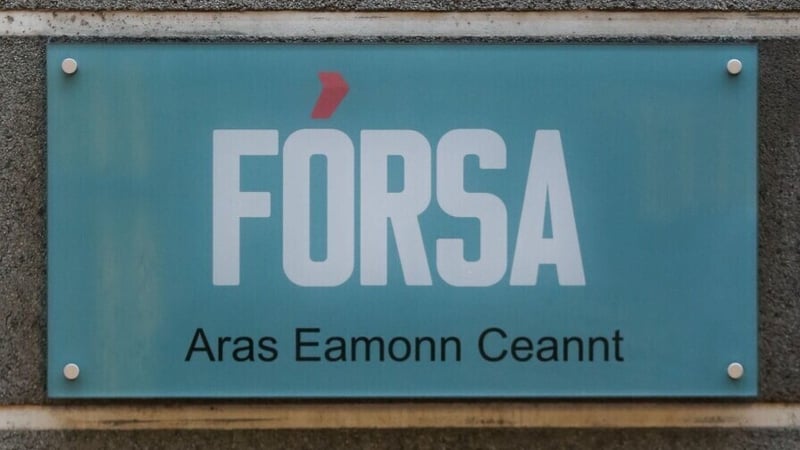Updated / Tuesday, 30 Jan 2024

Agreement was reached last week following talks at the Workplace Relations Commission (WRC)
By Brian O'Donovan
Work & Technology Correspondent
Ireland's largest public service trade union, Fórsa, will commence a ballot on the new public sector pay deal next month.
The union's executive is recommending acceptance of the agreement which will provide for pay increases of 10.25% and over a two-and-a-half year period.
The deal is estimated to be worth up to 17.3% for lower paid workers.
Agreement was reached last week following talks at the Workplace Relations Commission (WRC) involving unions, staff association and Government representatives.
Fórsa represents just over 85,000 members, most of whom are employed in public services and state agencies.
From next week, the union will commence two weeks’ of member information meetings in advance of the ballot, which is set to commence on 19 February.
Fórsa General Secretary Kevin Callinan said union members would ultimately decide whether to accept the new agreement.
"This morning the union’s executive backed the terms of the deal negotiated over the past two months, and its recommendation is based on the understanding that the pay terms represent the absolute maximum achievable through negotiations at this time, and that it is the outcome of a challenging negotiations process," Mr Callinan said.
The previous public service pay agreement, Building Momentum, expired on 31 December 2023 and the proposed new deal will run from January 2024 to June 2026.
The 19 unions affiliated to the Public Services Committee (PSC) of the Irish Congress of Trade Unions (ICTU), have until Monday 25 March to complete ballots of their members.
If the deal is ratified, the first of a series of pay increases will come in the form a 2.25% increase backdated to 1 January.
The pay deal will cost around €3.6 billion and includes a local bargaining mechanism to allow individual grades, groups and categories of public servants to raise specific issues.
By Brian O'Donovan
Work & Technology Correspondent
Ireland's largest public service trade union, Fórsa, will commence a ballot on the new public sector pay deal next month.
The union's executive is recommending acceptance of the agreement which will provide for pay increases of 10.25% and over a two-and-a-half year period.
The deal is estimated to be worth up to 17.3% for lower paid workers.
Agreement was reached last week following talks at the Workplace Relations Commission (WRC) involving unions, staff association and Government representatives.
Fórsa represents just over 85,000 members, most of whom are employed in public services and state agencies.
From next week, the union will commence two weeks’ of member information meetings in advance of the ballot, which is set to commence on 19 February.
Fórsa General Secretary Kevin Callinan said union members would ultimately decide whether to accept the new agreement.
"This morning the union’s executive backed the terms of the deal negotiated over the past two months, and its recommendation is based on the understanding that the pay terms represent the absolute maximum achievable through negotiations at this time, and that it is the outcome of a challenging negotiations process," Mr Callinan said.
The previous public service pay agreement, Building Momentum, expired on 31 December 2023 and the proposed new deal will run from January 2024 to June 2026.
The 19 unions affiliated to the Public Services Committee (PSC) of the Irish Congress of Trade Unions (ICTU), have until Monday 25 March to complete ballots of their members.
If the deal is ratified, the first of a series of pay increases will come in the form a 2.25% increase backdated to 1 January.
The pay deal will cost around €3.6 billion and includes a local bargaining mechanism to allow individual grades, groups and categories of public servants to raise specific issues.
No comments:
Post a Comment